220 US Marines were killed in the Beirut bombing 37 years ago — it was the deadliest day for the Corps since World War II's Battle of Iwo Jima

The horrific Oct. 23, 1983 attack on the multinational peacekeepers, an attack purportedly perpetrated by the Iranian-funded terrorist organization Hezbollah, was especially devastating for the US Marine Corps, which lost 220 service members.
American troops were buried in the rubble. "Bodies were lying around all over," one rescuer reportedly said at the time.
"There are no words to properly express our outrage and I think the outrage of all Americans at the despicable act," President Ronald Reagan said.
Thirty-seven years ago, two suicide bombers killed 241 American and 58 French military personnel, as well as six civilians, in Beirut, Lebanon.
The horrific Oct. 23, 1983 attack on the multinational peacekeepers, an attack purportedly perpetrated by the Iranian-funded terrorist organization Hezbollah, was especially devastating for the US Marine Corps, which lost 220 service members. The Corps had not suffered such a loss since in one day since Iwo Jima. Eighteen US Navy sailors and three Army soldiers were also killed in the Beirut barracks bombing, and dozens of others were injured.
The deadly blast, characterized by the FBI as the largest non-nuclear explosion they'd ever seen, came just a few months after the April 18, 1983 bombing of the US Embassy in Lebanon, where an extremist killed 63 people, including 17 Americans.
In 1982, the US decided, at the request of the Lebanese government, to send US troops to Lebanon to serve as peacekeepers in the bloody Lebanese Civil War between warring Muslim and Christian factions. The 24th Marine Amphibious Unit stationed at Camp Lejeune, North Carolina was deployed to Beirut in the spring of 1983.
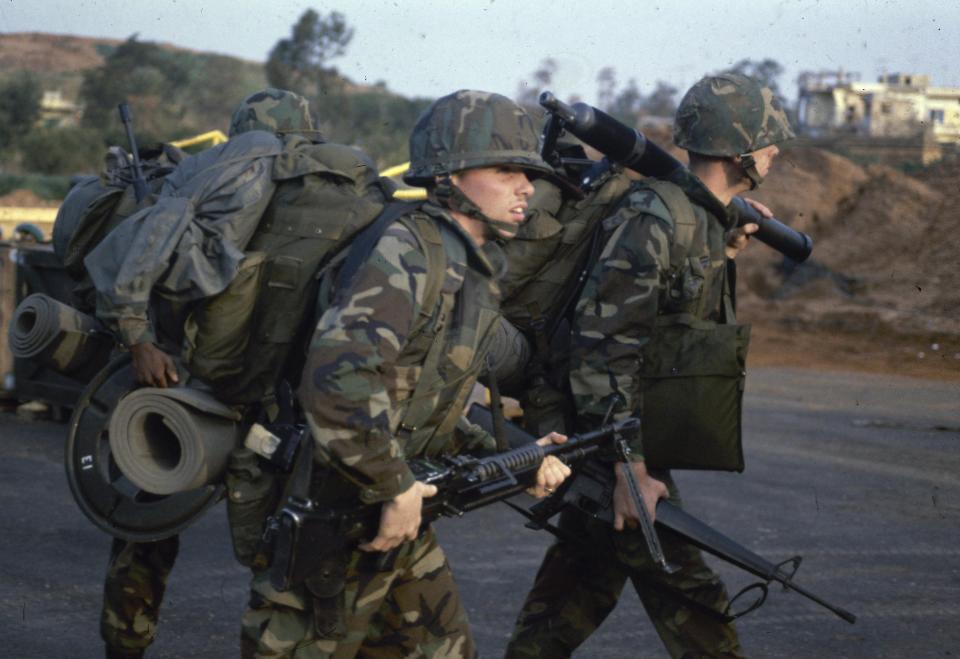
US forces, along with their French and Italian counterparts, achieved some initial success in Lebanon, but the Muslim factions in the country began to turn their aggression toward the foreign troops.

At 6:22 a.m. on Oct. 23, 1983, a truck laden with thousands of pounds of explosives slammed into the 1st Battalion, 8th Marine headquarters at the airport in Beirut.
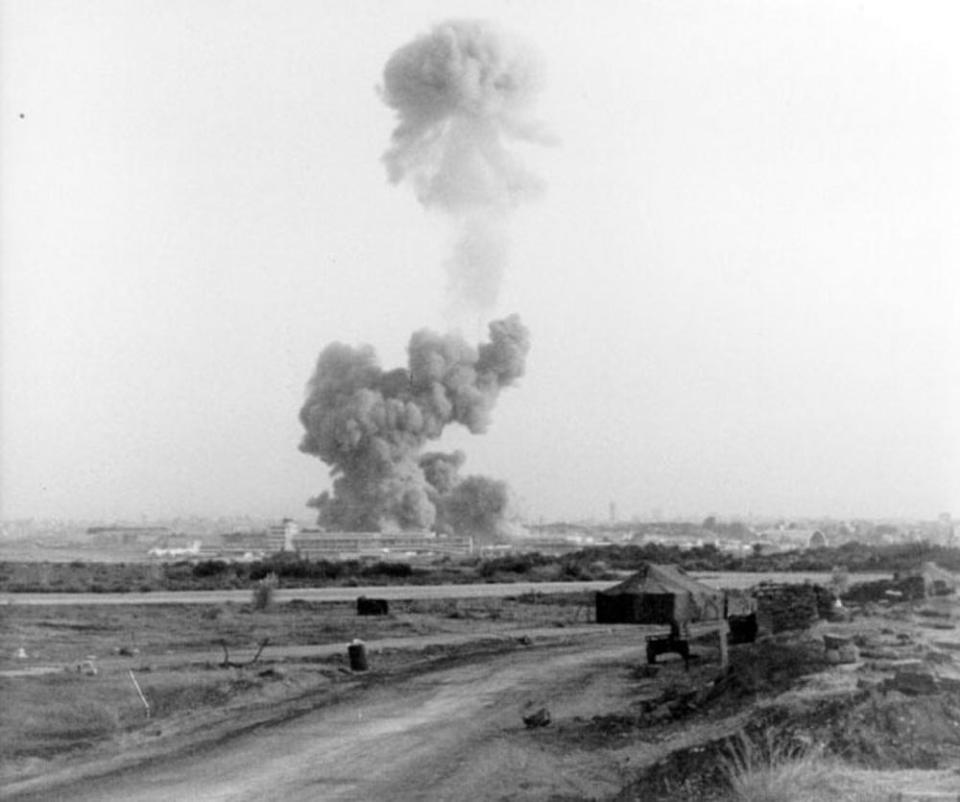
The driver, said to be a Iranian national, detonated the explosives, collapsing the four-story barracks.
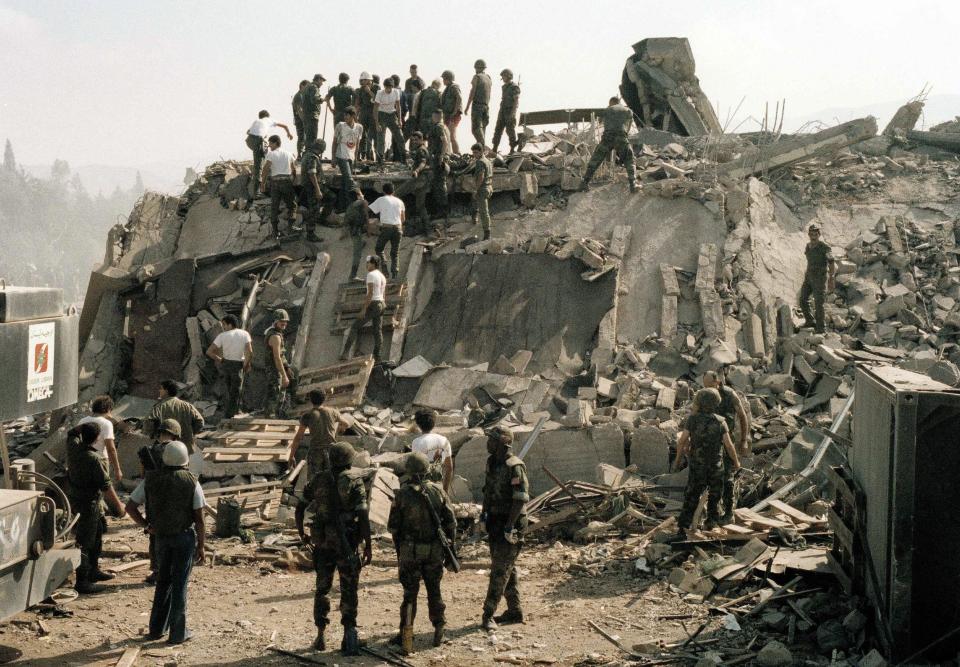
American troops were buried in the rubble. "Bodies were lying around all over," one rescuer reportedly said at the time, "Other people were trapped under the concrete. I could hear them screaming: ‘Get us out. Don't leave us.’ I just started digging, picking men out."
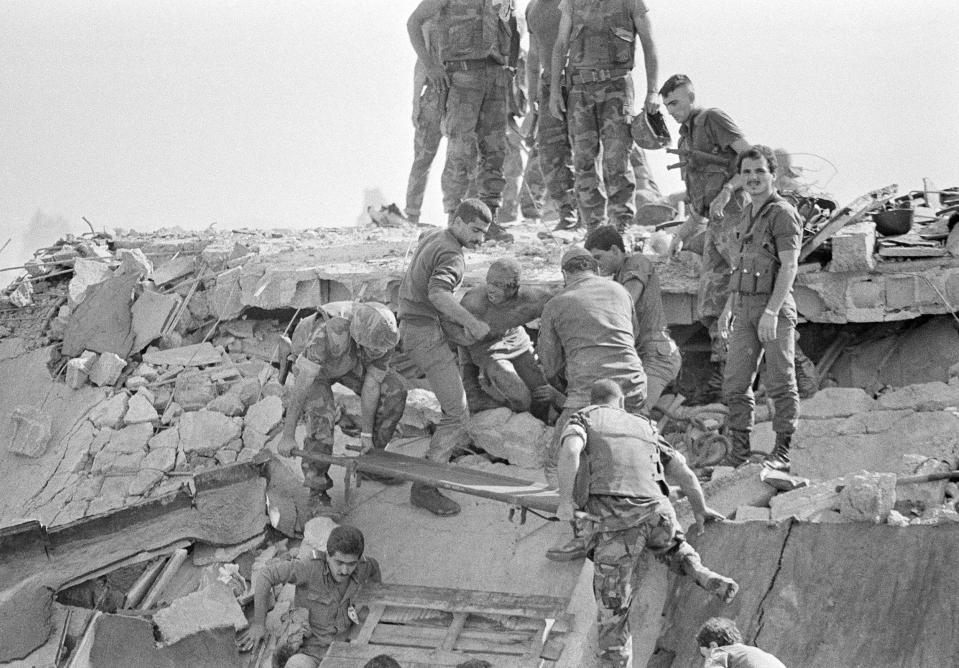
The attack claimed the lives of 220 Marines, making it the worst single-day loss for the service in nearly four decades.
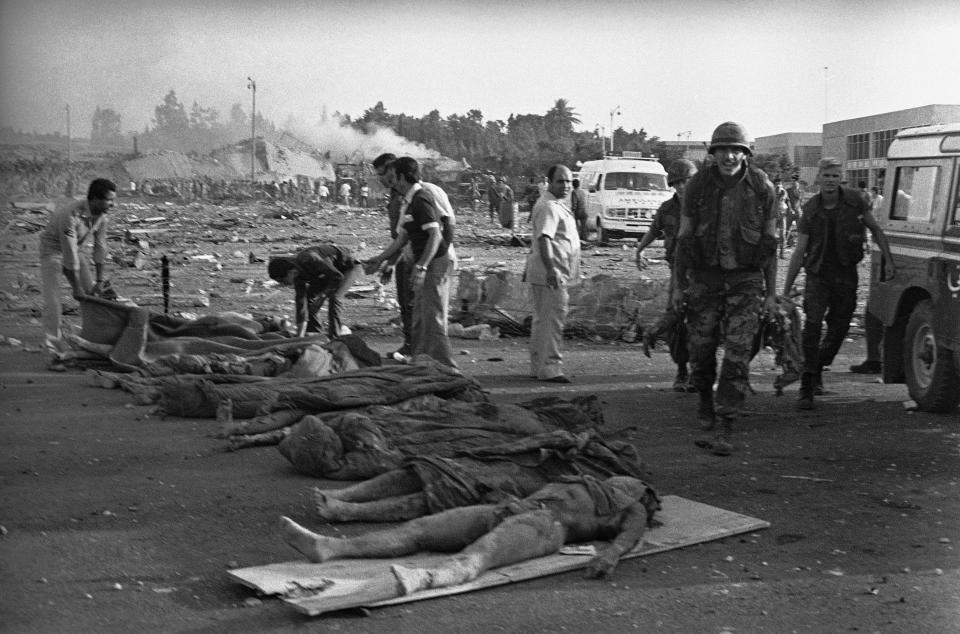
Minutes after the first attack, another suicide bomber hit the French barracks a couple of miles away. French troops managed to kill the driver, but the bomb exploded a few moments later, bringing down the nine-story building.
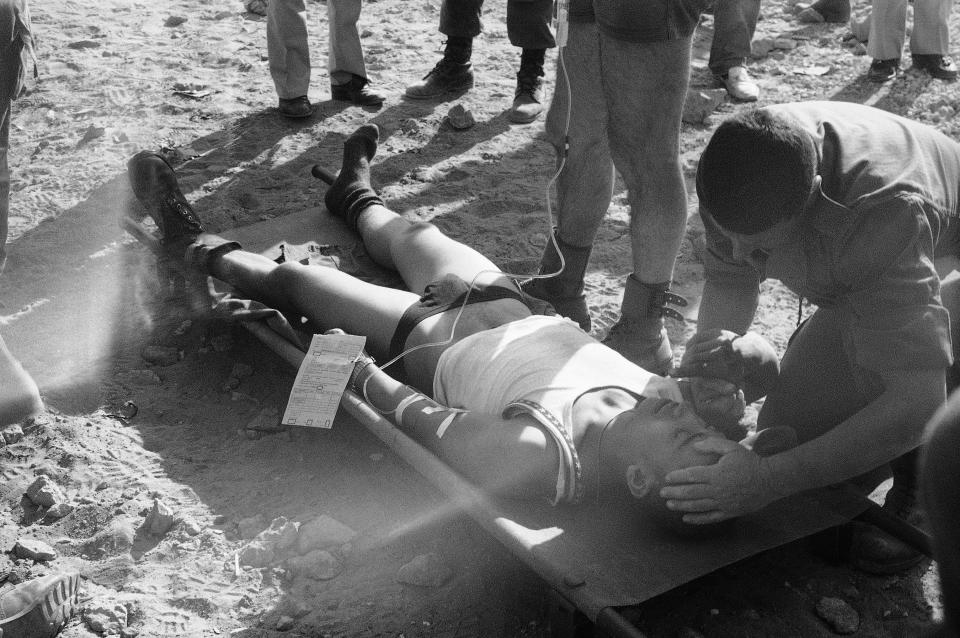
"There are no words to properly express our outrage and I think the outrage of all Americans at the despicable act," President Ronald Reagan said in response.
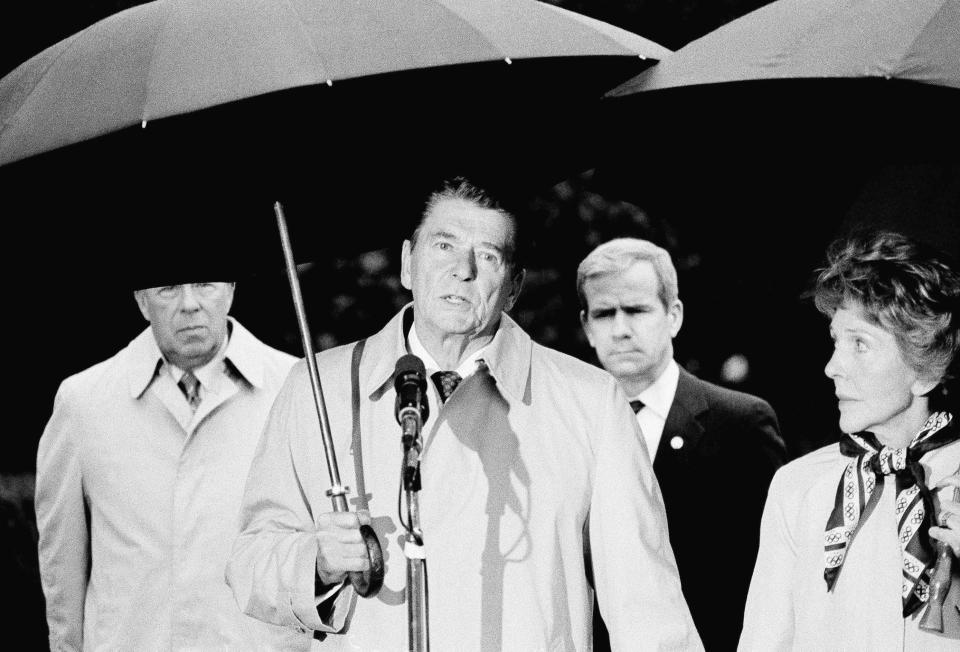
The US withdrew its troops from Lebanon in February 1984.

A memorial was built at Marine Corps Base Camp Lejeune in North Carolina and dedicated on Oct. 23, 1986. The names of the fallen, as well as the inscription, "They came in peace," are written on the memorial.
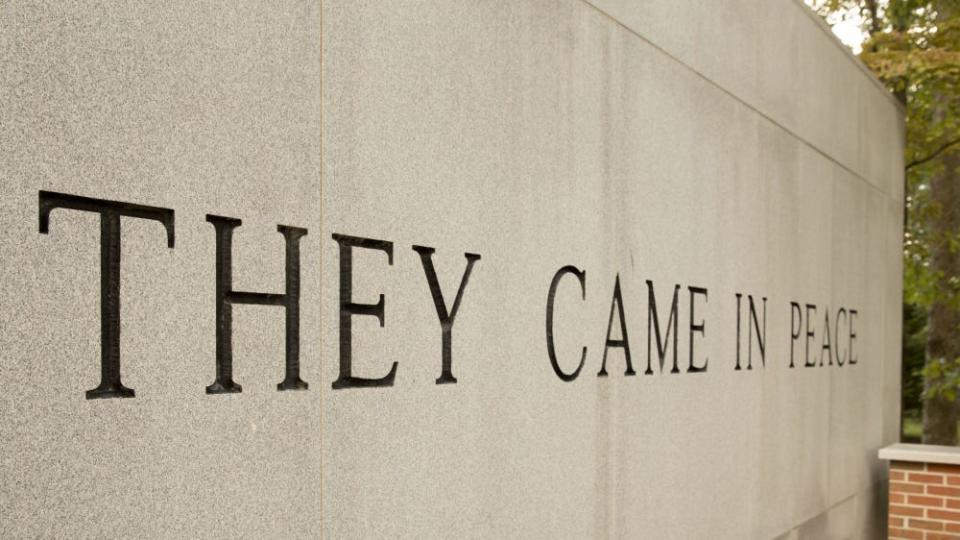
Memorial services are held annually to remember those who were lost, as well as the cost of freedom.
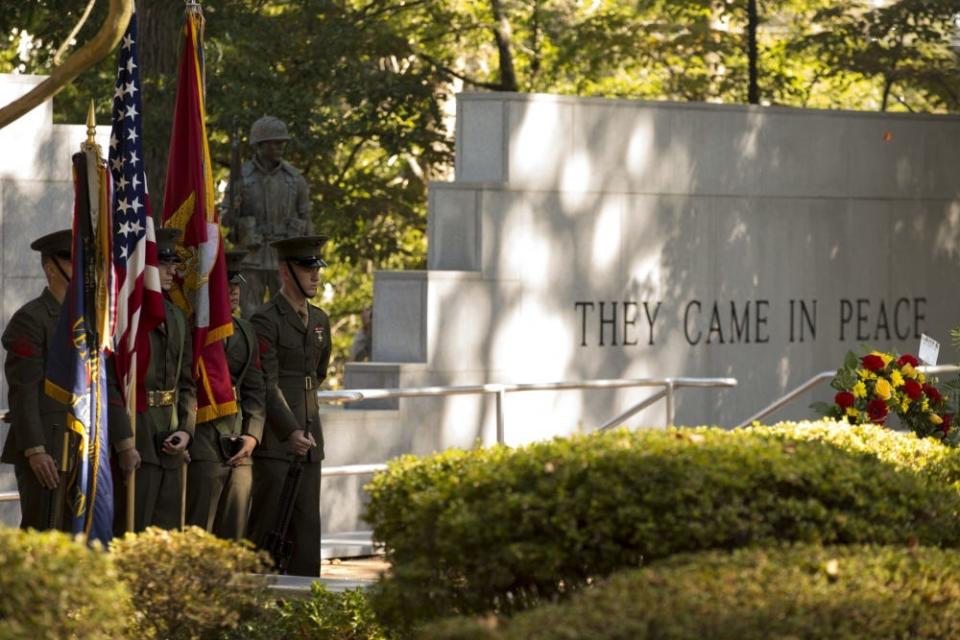
"I think we all kind of grew up that day because we knew the world had changed," then-Marine Corps Commandant Gen. Robert Neller said in 2018. "It changed the way we saw the world. It changed the way we looked at threats. It changed the way we trained. It changed the way we operated – and those lessons learned carried through the rest of our time as Marines. And that impact of Beirut still shapes us today."
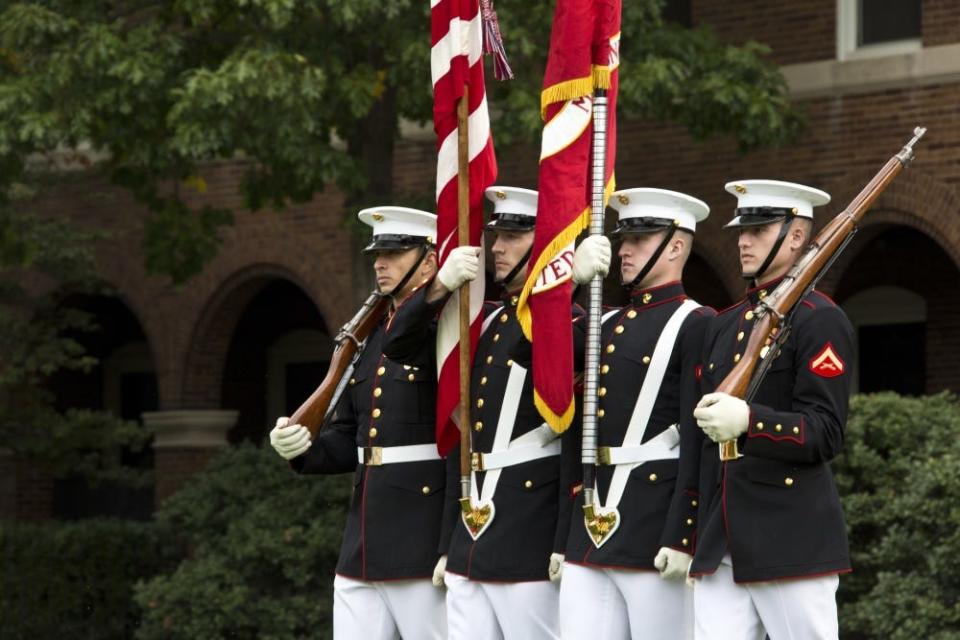
Read the original article on Business Insider


